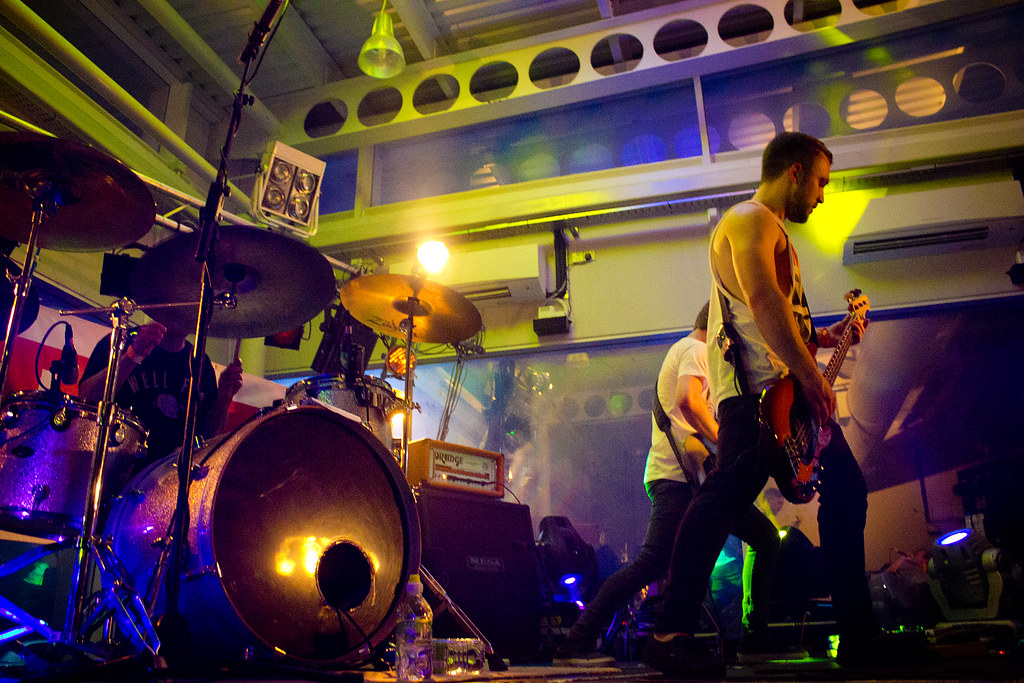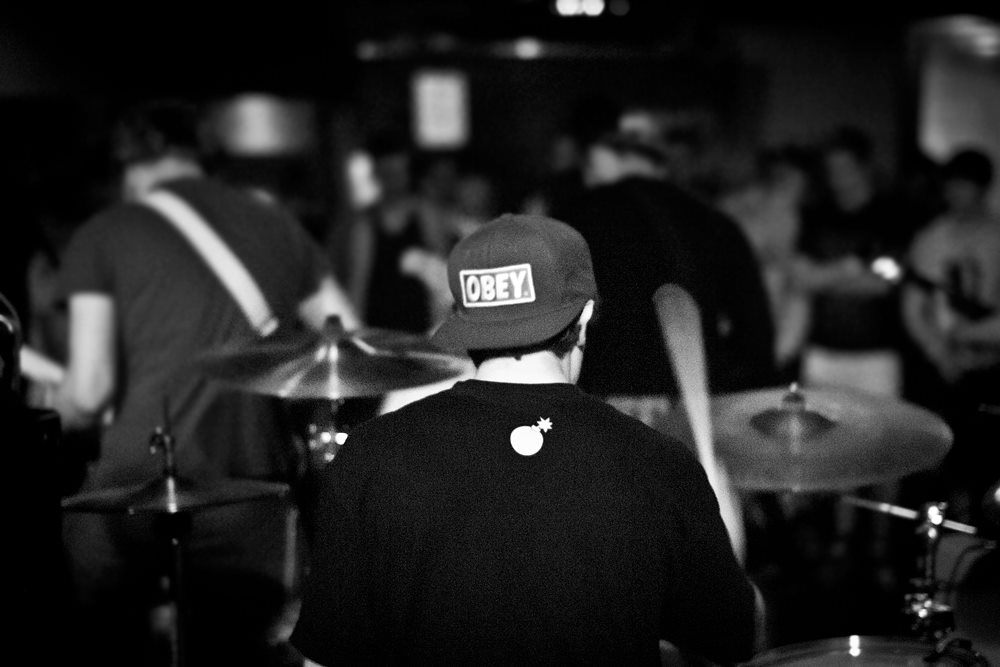How to Start a Band: A Practical Guide For Fame, Money and Recognition

Rob is the co-founder of Scenebud and spent his teens and twenties playing in bands, going everywhere from a small town hall in his hometown all the way to a slightly bigger town hall in another country.
I’ve always loved music, but for me it wasn’t enough to listen to records or play along to songs in my bedroom. I wanted to experience it on a new level.
I absolutely had to join a band. And I wanted the fame, money and recognition that came with it.
…Unfortunately, I didn’t get any of the aforementioned fame, money or recognition but I still look back on my time in bands fondly. They were some of the most fun and creative experiences, but also gave me crucial skills to manage other aspects of my life.
Whether you dream of headlining festivals or simply jamming in a garage, there are a couple of key considerations that will help you get far more out of the experience.
Here are five steps to ensure you’re not taking to social media to announce your band’s breakup before you’ve booked your first gig.
1. What kind of band do you want to be?
Sounds really obvious, but as you’re going to be joining forces with other people who will have their own goals and opinions it’s probably worth considering the things that you’re flexible about and the areas you absolutely will not budge on.
- Genre: What kind of music do you want to play? Are you open to just about anything or are you dead set on playing a specific type of music. Knowing this from the outset will avoid any awkward conversations about that breakdown in ⅞ timing or the Minions themed concept album.
- Goals: Be frank and up front. Are you looking to jam out some covers in a garage or is global domination the goal? There’s no harm with either, but it’ll get pretty frustrating if you’re pulling in different directions.
- Commitment Level: Similar to the above and perhaps a sense check on how realistic those goals are. ‘No timewasters’ is a cliche on the musicians wanted ads but be clear about how much time you can commit. Will you go off on tour at the drop of a hat? Do you only want to practice once a month? Do you want everyone to get matching tattoos and assume a cool new alias? Is this something you need to fit in around family commitments?

2. Finding Your Bandmates
My experience is that the more serious you are, the harder it is to find the right crew. If you’re not picky, you can find a band of misfits without too much effort. But for something specific, you may have to go outside your comfort zone.
- Genre: What kind of music do you want to play? Are you open to just about anything or are you dead set on playing a specific type of music. Knowing this from the outset will avoid any awkward conversations about that breakdown in ⅞ timing or the Minions themed concept album.
- Goals: Be frank and up front. Are you looking to jam out some covers in a garage or is global domination the goal? There’s no harm with either, but it’ll get pretty frustrating if you’re pulling in different directions.
- Commitment Level: Similar to the above and perhaps a sense check on how realistic those goals are. ‘No timewasters’ is a cliche on the musicians wanted ads but be clear about how much time you can commit. Will you go off on tour at the drop of a hat? Do you only want to practice once a month? Do you want everyone to get matching tattoos and assume a cool new alias? Is this something you need to fit in around family commitments?

3. Becoming a band.
You have a lineup. You have a name. You’ve registered social media accounts and written a very flattering biography; but there are still a few steps to go through before you’re a real band.
- Setlist: If it’s original material, figure out who will take responsibility for writing the songs and building out the catalogue. If covers, come up with a pragmatic way to decide on what songs you’ll play.
- Practice: Consistency is key. Even accomplished musicians can sound bad the first time they connect with new musicians so keep playing. There’s something incredibly satisfying in hearing the group tighten up and become accustomed to each others’ playing style.
- Chemistry: Chemistry is a tricky one to explain. Lars Ulrich and James Hetfield have chemistry. The Gallagher brothers have chemistry. From the previous examples, you can see that you don’t have to be best friends but it helps to have some level of connection, or passion when you play together.

4. Getting Your Band Out There
You are inching ever closer to the fame, money and recognition. Not that you care, because it’s all about the music. Obviously. But how do we take you from the practice room to the main stage? Well, it’s deceptively simple but also incredibly hard. All you need to do is…
- Record some music: Do this first. How on earth will people know they like you or book you for decent gigs if they haven’t heard your music? Aside from the obvious distribution channels, the likes of YouTube, Soundcloud and Bandcamp are also amazing (and free) ways to get your songs online.
- Promotion: There’s a lot of different routes you can go down here but the obvious starting point is to create social media profiles, fill in the necessary information and upload some photos. Then post regularly enough with relevant content that it starts to get in front of the right people, but not so much that it becomes annoying. Once you get a bit of a buzz, you may find there are blogs or influencers who want to use your name to grow their own audience. Do it if you think they’re cool and respect what they do. Don’t do it if you think they suck.
- Networking: If you’re early on in your music career, it really helps to get out there and meet people in real life. For a start, it’s generally good karma to go to gigs and check out other bands. But also, the right people are far more likely to connect with a real person. I wish the adage of ‘it’s not what you know, but who you know’ weren’t true, but it really is.
- Persistence: Enjoy the journey because it takes time. Don’t put too much emphasis on specific milestones or ‘making it’. Instead, focus on getting tighter, writing better songs, meeting more fans and playing more gigs. That way the small wins will be far sweeter.

5. Use Scenebud
Scenebud was created to help fans, artists, venues and promoters with booking and promoting live gigs. Even in our basic iteration, here’s how we can help you:
- Finding Members: Use Scenebud to connect with musicians and fans in your area.
- Promote your gigs: That’s right, it’s completely free and always will be free to post an event on Scenebud and get it in front of the right people.
- Network: Find the people in your scene and other bands you can connect with.
- Promote: Create your artist profile on Scenebud to make sure people can find you and can see what you’re up to.

Conclusion
While the fame, money, and arena tours might remain a rock and roll fantasy for many of us, the journey of starting and being in a band is a reward in itself. It’s about the shared passion for music, the thrill of creating something together, and the unforgettable experiences forged in rehearsal rooms and on stages, big or small. By considering these practical steps you'll be well-equipped to navigate the exciting, and sometimes chaotic, world of band life.
So go forth, find your tribe, make some noise, and who knows? Maybe you'll even get to play a slightly bigger town too hall someday.
